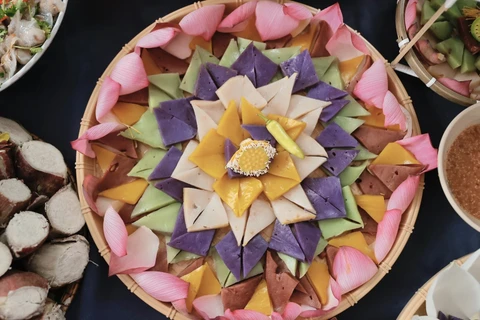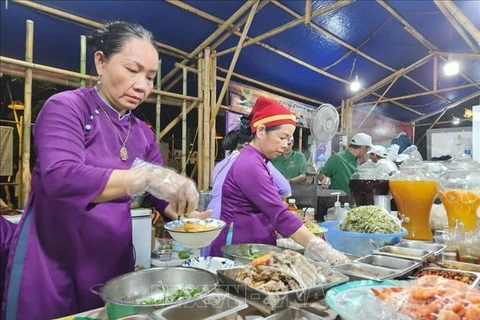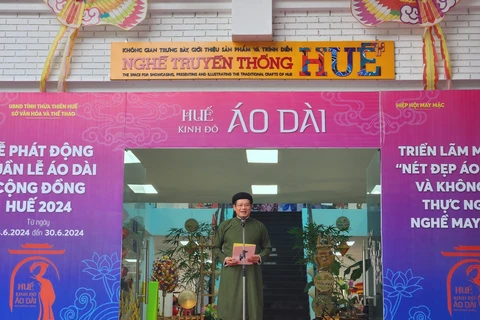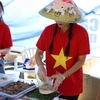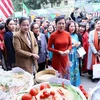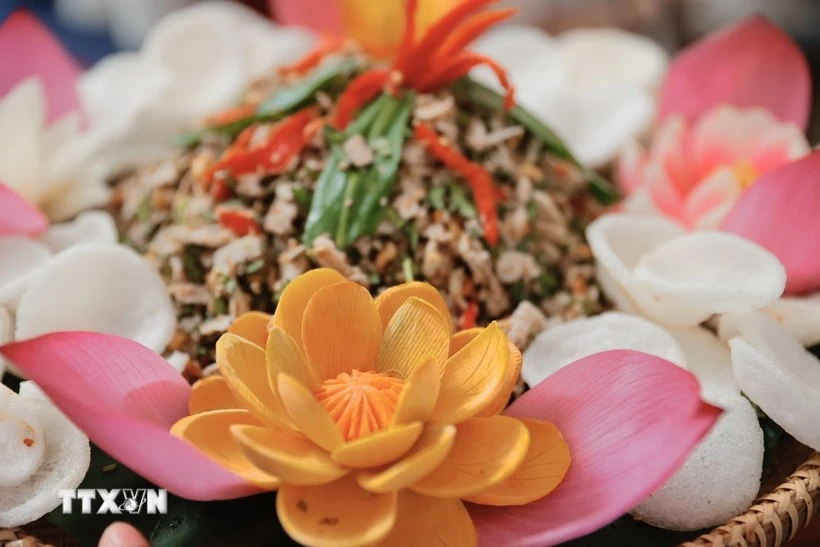
Thua Thien-Hue (VNA) – Nestled in central Vietnam, Thua Thien-Hue province boasts breathtaking landscapes and a rich cultural tapestry. But beyond the poetic scenery lies another treasure: Hue's renowned vegetarian cuisine.
This culinary tradition is deeply intertwined with the history of Buddhism in Vietnam. Hue's role as the "cradle" of Vietnamese Buddhism dates back to 1558, and its influence permeated the royal court. Vegetarianism became a cornerstone of many solemn rituals during the Nguyen Dynasty.
The nobility's embrace of vegetarianism fostered the development of an impressive array of meat-free dishes – over 125 in total. These offerings mirrored the meticulousness and flavour of their meat-based counterparts.
Hue's strong Buddhist presence is evident in its sheer number of pagodas (108) and temples (over 300). Vegetarianism isn't just a practice for religious holidays, it's woven into the fabric of daily life and family traditions. Many households prepare vegetarian dishes regularly, offering them throughout the year.
Both within pagodas and local homes, a shared philosophy guides ingredient selection: seasonality. Spring menus burst with colorful eggplants, beans, gourds and mushrooms. Summer brings refreshing sweet potato leaves, taro and lotus delights. Autumn showcases earthy purple yam, cassava, and lotus root, while winter offers comforting radishes and kohlrabi.
Researcher Ton Nu Khanh Trang aptly describes Hue's seasonal vegetarian cuisine as a blend of "simplicity and rationality, modesty yet diversity, and meticulousness with sophistication."
Hue's vegetarian offerings go beyond fresh produce. Over centuries, its cuisine has absorbed influences across the country, resulting in a symphony of flavours – salty, sweet, rich, nutty, and even hints of sour, bitter, and spice.
These dishes are often accompanied by a delectable array of dipping sauces. Banh beo (water fern cakes) come alive with a touch of sweetness, while com sen (lotus rice) shines with pure soy sauce. Banh cuon van hoa (steamed rice pancakes) and com am phu (shelled rice) find their perfect partner in a sweet and sour soy sauce.
Rice plays a starring role in Hue's vegetarian cuisine, transforming into a multitude of unique dishes. Com la sen chay (vegetarian lotus leaf rice) stands out as a masterpiece, an intricate dish reserved for royalty during the Nguyen Dynasty. Its complexity and flavour profile showcase the artistry of Hue's culinary heritage.
Presentation is paramount for Hue's chefs. Their artistic plating elevates these vegetarian delights into visually stunning works of art.
The Hue Festival 2024 highlighted this rich tradition with a dedicated vegetarian cuisine festival which showcased 78 dishes from local hotels, restaurants and temples, offering an unforgettable culinary experience to residents and visitors.
Nguyen Van Phuc, Director of the provincial Department of Tourism, highlighted the importance of promoting Hue's culinary scene. Initiatives include 3D digitisation of traditional dishes and dedicated food festivals focusing on vegetarian cuisine.
Tourism experts believe Hue has the potential to develop specialised tours that combine visits to sacred temples with immersive experiences in green, clean cuisine. This would allow visitors to savor the unique flavours of Hue's vegetarian offerings, fostering a deeper connection to the city's vibrant culture.
Hue offers more than just stunning landscapes; it's a place where history, religion, and artistry converge on the plate. A journey to Hue isn't complete without savouring the symphony of flavours that is its vegetarian cuisine./.
